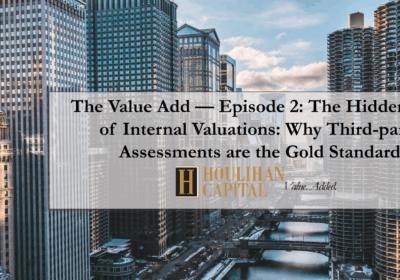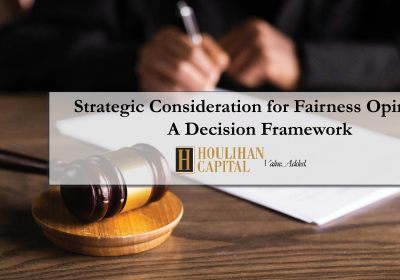Since March 2022, when the Federal Reserve initiated rate hikes in response to inflation, borrowing costs have generally increased. However, interest rates have begun receding in recent months fueling a wave of refinancing and repricing activities, including dividend recapitalizations (“Dividend Recaps”), a transaction wherein a company borrows money to pay a special dividend to shareholders.(1)
Data from PitchBook(2) indicates that by January 2024, the total spread for B+/B rated loan issuers, inclusive of upfront fees and credit spread adjustments, had fallen to 385 basis points (bps)—the lowest since January 2020 and a decrease from 445 bps in December 2023. By February 2024, the rate rose slightly to 417 bps, yet remained below any level seen in 2023. For BB/BB- rated borrowers, the spread reached 263 bps in January, marking the lowest rate since February 2020. Amidst these lower borrowing costs, private equity sponsors rapidly extracted dividends from their portfolio companies, pulling in $11.69 billion through Dividend Recaps by March 4, 2024—surpassing volumes seen in any comparable period over the past five years and nearing the full-year total of $13.5 billion in 2023.
The recent spike in Dividend Recaps is partly driven by challenges faced by private equity firms in exiting their investments amid softer LBO and M&A markets. According to PitchBook, the median age of private equity portfolio companies in the U.S. reached an 11-year high of 4.2 years in 2023, and the median age of successfully exited companies climbed to a record 6.4 years. With uncertain exit opportunities, private equity firms have more frequently turned to Dividend Recaps to generate interim liquidity for investors.
Despite the robust activity in the Dividend Recap market, the average leverage, measured by pro forma debt to EBITDA, stood at 4.8x in early 2024, slightly up from 4.6x in 2023 but still below the decade’s average of 5.2x. The percentage of deals leveraged at 6x or higher was only 10% in 2023 and 11% in early 2024, significantly lower than the 30% seen between 2018 and 2022, with a peak of 46% in 2021.
Although current leverage levels are relatively moderate, debt financing and leveraged transactions inherently pose risks, challenging the ability of leveraged companies to generate adequate cash flow to meet debt obligations and sustain operations. Additional considerations from industry reports highlight that these transactions, while lucrative in short-term liquidity provision, can significantly increase the financial risk profile of the entity, leading to potential long-term sustainability issues if not managed carefully. Moreover, the increased reliance on such financial strategies amidst fluctuating market conditions underscores the need for rigorous financial oversight and strategic planning to mitigate associated risks.
When a company is unable to meet its debt obligations and files for bankruptcy protection, it not only faces the direct financial impacts of defaulting but also the risk of creditors filing a fraudulent conveyance lawsuit. These lawsuits challenge past transactions on the grounds that the borrower was insolvent, unable to meet debt payments as they came due, or lacked sufficient capital to operate at the time of the transaction. If successfully argued, a fraudulent conveyance verdict can lead to the nullification and unwinding of a long-closed transaction, causing substantial losses and lengthy legal battles.
In light of these risks in leveraged deals, such as Dividend Recaps, it is a common best practice for all parties involved, including new lenders, sellers, and directors, to obtain an independent solvency opinion at the time of the deal. This opinion uses specific tests tailored to preemptively combat a fraudulent conveyance argument by evaluating the firm’s capability to manage its financial responsibilities, service its debts, and sustain operations after the transaction.
In conclusion, while Dividend Recaps can provide immediate liquidity to investors when other options are limited, they also underscore the critical balance firms must maintain between generating returns for investors and managing financial and legal risk. Part of a firm’s risk mitigation strategy for a Dividend Recap should include obtaining a timely solvency opinion in connection with the transaction.
How Houlihan Capital Can Help
Houlihan Capital is a leading provider of independent solvency opinions, helping companies and their stakeholders navigate the complexities of leveraged transactions like Dividend Recapitalizations. Our experienced team conducts comprehensive financial analyses to assess a company’s ability to meet its debt obligations, ensuring financial stability and mitigating legal risks, such as fraudulent conveyance claims. In today’s dynamic market environment, where debt financing is increasingly utilized to fuel liquidity, a solvency opinion offers crucial protection, allowing all parties involved to proceed with confidence and safeguard the long-term viability of the business. For inquiries, please contact:
______________________
(1) https://www.ft.com/content/b33cb3b0-a90a-41f1-adfe-99261088d53e
(2) https://pitchbook.com/news/articles/leveraged-loans-backing-dividend-recaps-surge-pe-sponsors-lead-the-charge



